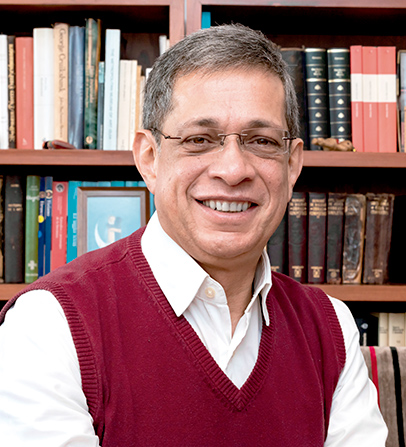Ur commitment: to research for everyone
By: Juan Felipe Córdoba Restrepo
Photos:
Society and Culture

By: Juan Felipe Córdoba Restrepo
Photos:
The current context forced us to deeply reflect about our society, what we are as a nation, what we are as a higher educational institution, what we research, and what we deliver to the community.
For Universidad del Rosario, in its long trajectory with the country, it is clear that its efforts will continue toward consolidating, exploring, and opening new fronts of research that are beneficial for our world, in particular, for Colombia. Our researchers know and understand that our institution is motivated by a permanent commitment to society, and thus, they dedicate all their efforts to thrive in building a better world, which implies to be at the forefront of new challenges.

n the institutions in charge of advancing research projects, as in the case of the university, we must reflect on what we do and its implications, such that we find keys to promote, from our knowledge, driving agents that foster discussion, debate, and comparison. The foregoing is a clear approach of proposing ways and solutions for the current problems that we have as individuals. The different research studies we do aim at contributing to build better societies, and research is a valuable tool we have available to achieve that. It is necessary to recognize research as an agent that allows and favors changes.